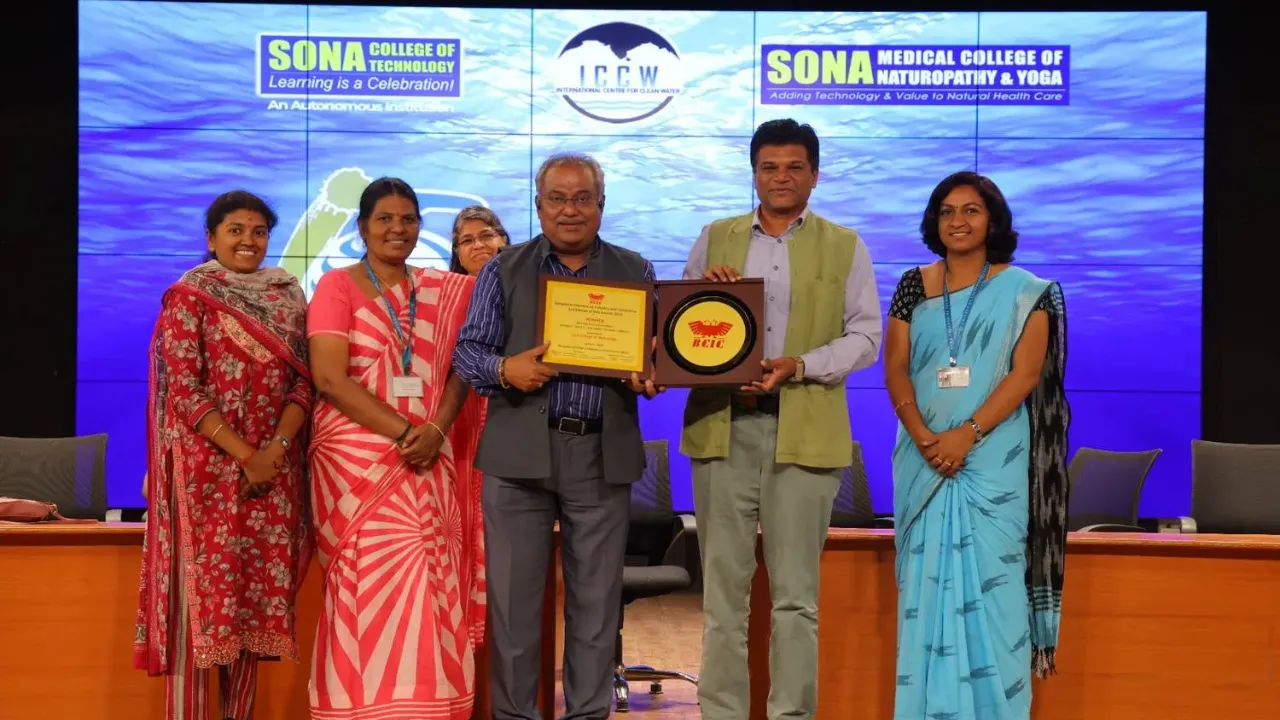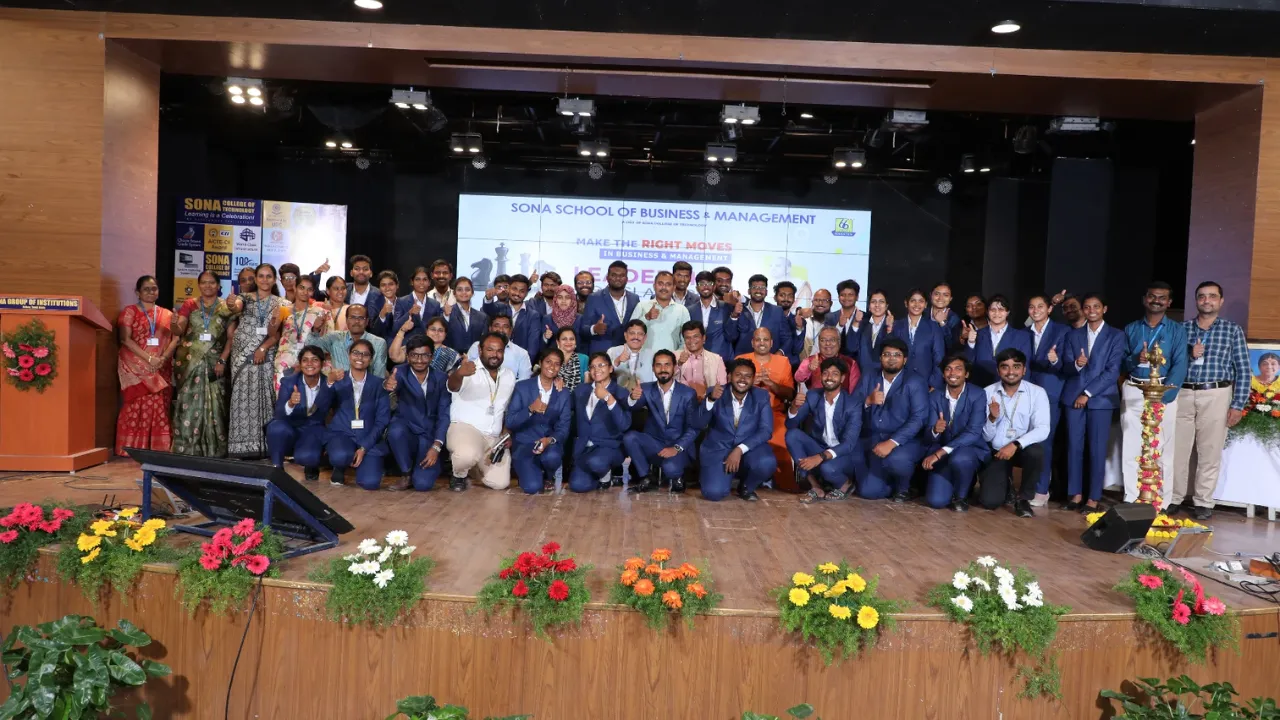SONA School of Management’s Focus on Business Ethics and Values: In today’s rapidly changing business world, integrity is no longer optional—it’s essential. As companies face growing pressure from consumers, investors, and governments to act responsibly, the role of ethical leadership is more critical than ever. Businesses that lack a solid moral foundation risk reputational damage, loss of trust, and long-term failure. Recognizing this, institutions like the SONA School of Management are going beyond conventional MBA education by embedding ethics and social responsibility deeply into their programs.
Ethical awareness is not just a subject at SONA—it’s a culture. From the curriculum to student-led initiatives, SONA places a strong emphasis on building morally grounded leaders who can navigate complex decisions with clarity, fairness, and purpose. This distinctive approach is preparing a generation of professionals who believe that doing good and doing well can go hand in hand.
SONA School of Management’s Focus on Business Ethics and Values
The SONA School of Management’s focus on business ethics and values reflects a broader commitment to shaping not just effective managers, but socially conscious and responsible leaders. By integrating business ethics, sustainability, governance, and social responsibility into its MBA coursework, SONA ensures that students learn to evaluate business choices beyond profits. From day one, students are encouraged to consider the long-term impact of their decisions on people, communities, and the environment. With workshops on ethical dilemmas, case studies on real-world corporate misconduct, and direct involvement in community projects, students learn to lead with both intellect and integrity.
Overview Table: Ethics and Values Integration at SONA
| Component | Details |
| Core Ethics Course | Business Ethics & Corporate Governance included in MBA syllabus |
| Real-World Case Studies | Curriculum includes global and Indian ethical dilemmas |
| CSR Projects | Mandatory fieldwork in community and social development |
| Sustainability in Business | ESG-focused workshops and green campus practices |
| Ethics Clubs and Forums | Student-led debates, discussions, and value-based leadership activities |
| Guest Lectures and Panels | Talks by ethical business leaders, activists, and NGO founders |
| Social Entrepreneurship Support | Incubation of value-driven and inclusive startups |
| Code of Conduct Awareness | Professional behavior workshops and integrity assessments |
Making Ethics a Core of Management Education
At SONA, business ethics is not just another subject—it’s a foundation. All MBA students undergo a mandatory course in Business Ethics and Corporate Governance, designed to foster a sense of accountability and purpose. The course moves beyond theory and uses case-based learning to make students analyze real ethical conflicts—such as fraud in finance, environmental irresponsibility, or labor exploitation.
Classroom conversations dive into topics like whistleblower protection, ethical marketing, fair compensation, and responsible supply chains. This approach helps students see how values impact strategy, reputation, and success.
Social Responsibility Through Community Projects
Theory only goes so far. To drive home the importance of social responsibility, SONA mandates Community-Based CSR Projects for all MBA students. These projects allow students to work with underprivileged communities, non-profits, or local businesses to address pressing issues—like sanitation, education, or women’s livelihood.
Students plan and execute these projects using management tools, giving them real-life exposure to solving societal problems. They experience the importance of stakeholder engagement, the impact of small interventions, and how businesses can uplift communities.
These projects often inspire students to consider careers in social entrepreneurship or to incorporate purpose into their future business ventures.
Sustainability, ESG, and Conscious Capitalism
SONA integrates environmental and social governance (ESG) into its broader curriculum. Workshops are conducted regularly to sensitize students to issues like climate change, green investing, ethical sourcing, and inclusive development.
SONA’s green campus itself becomes a learning ground. Solar power usage, eco-clubs, recycling drives, and water conservation initiatives all reinforce the idea that sustainability begins at home.
By helping students understand ESG frameworks, the MBA program prepares them for future roles where they’ll be expected to build businesses that are not only profitable but also planet-positive and socially inclusive.
Cultivating a Culture of Ethical Dialogue
Learning is most impactful when it’s student-driven. SONA promotes dialogue and discussion through its Ethics and Values Forum, a student-led initiative that organizes:
- Debates on controversial ethical issues
- Guest panels with industry leaders and activists
- Screening of documentaries on business ethics
- Ethical hackathons and case competitions
These activities build moral courage and help students form their own code of conduct. Students aren’t just passive learners—they actively shape conversations on what ethical leadership looks like in today’s volatile, complex world.
Supporting Purpose-Led Startups
At SONA, entrepreneurship doesn’t come at the cost of ethics. Through the SONA Incubation Foundation, the school encourages socially responsible startups. Whether it’s a platform for financial inclusion, a sustainable clothing line, or a health tech initiative for rural populations, students are given mentorship, resources, and seed support.
They learn how to balance financial viability with ethical innovation, showing that modern businesses can solve real problems without cutting corners or compromising values.
FAQs
1. Is ethics taught as a separate course at SONA?
Yes, Business Ethics & Corporate Governance is a core subject in the MBA program, enriched with global and Indian case studies.
2. Are students required to participate in social projects?
Absolutely. All students must engage in CSR fieldwork, often in collaboration with NGOs or rural communities, to learn social responsibility.
3. How is sustainability taught in the MBA curriculum?
Through ESG workshops, sustainability projects, and campus-based initiatives that emphasize eco-conscious management practices.
4. Can students pursue careers in ethical entrepreneurship?
Yes. SONA actively supports socially driven startups and helps students turn responsible business ideas into real ventures.
5. Do ethical practices limit business growth?
Not at all. SONA teaches that strong ethics often build long-term value, customer trust, and sustainable business models.
Final Thought
The SONA School of Management’s focus on business ethics and values is more than just academic—it’s a powerful response to the evolving role of businesses in society. With the world demanding transparency, fairness, and sustainability, SONA is producing graduates ready to lead with heart and mind.
Call to action:
If you’re seeking an MBA that shapes your career and your conscience, look no further than SONA School of Management. Visit their campus or explore their website to discover how this value-driven MBA can shape your journey into a leader who inspires trust, impact, and ethical success.

















